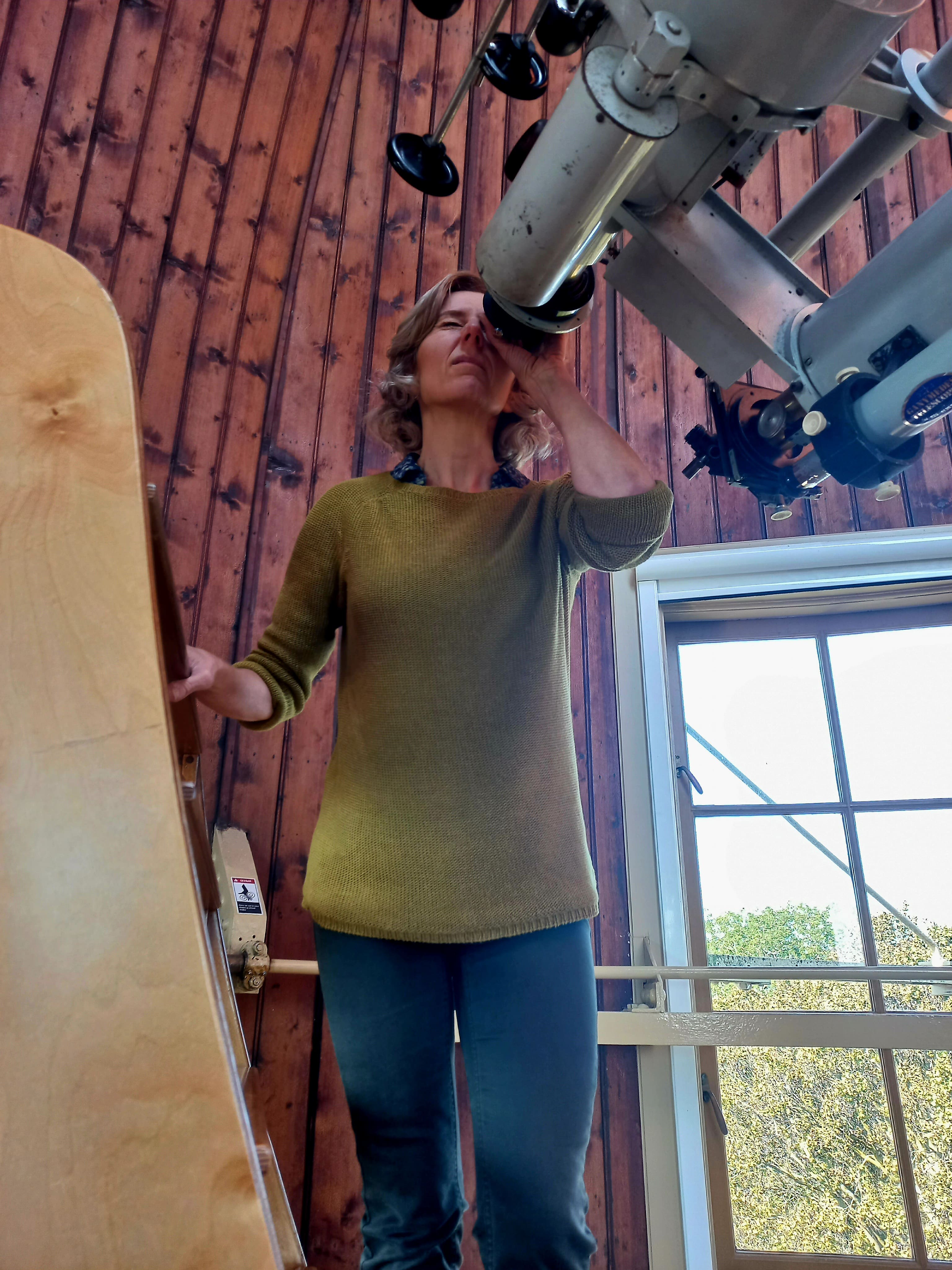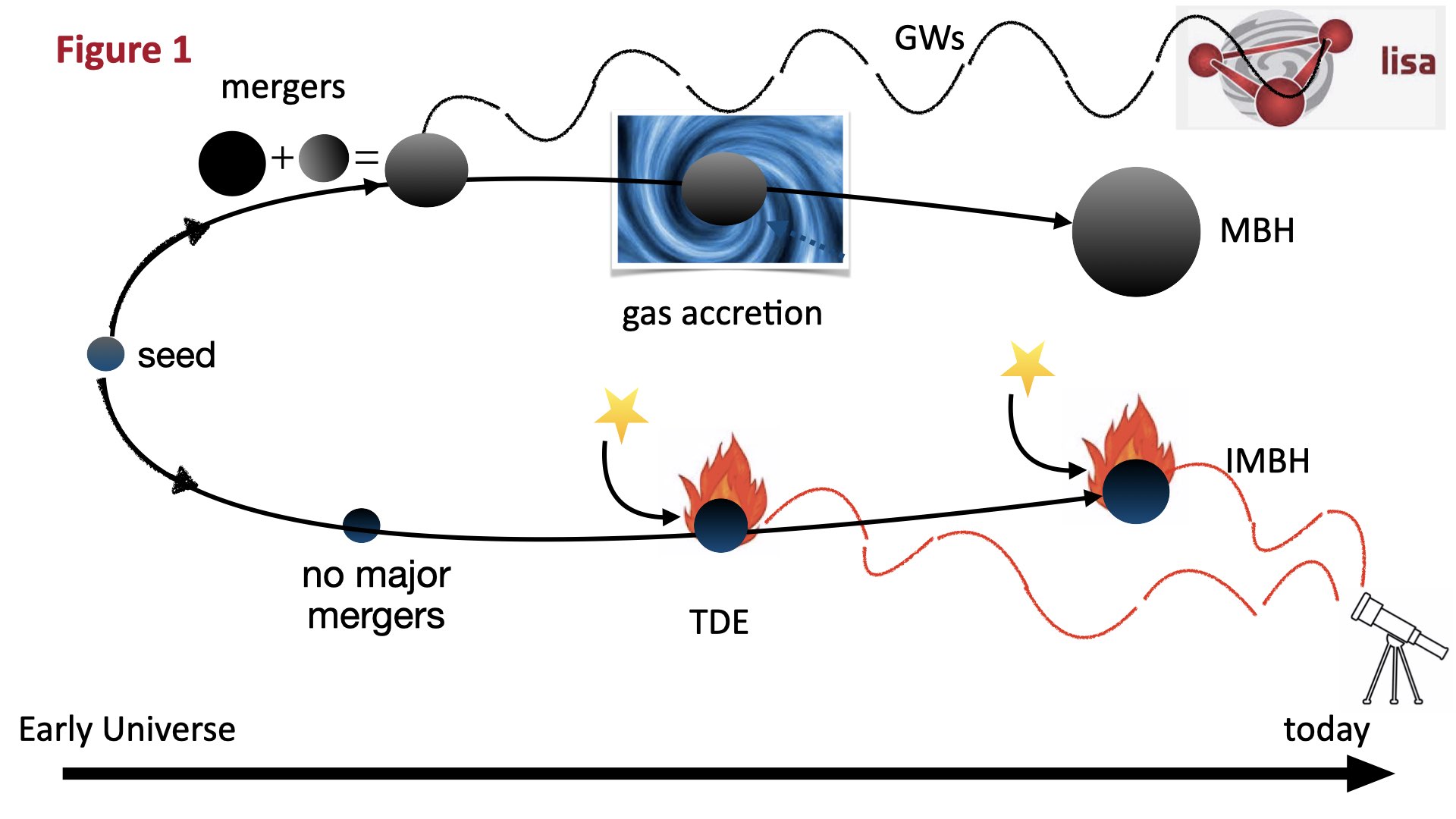
Elena M. Rossi
I am the principal investigator of a VICI grant on tidal disruption events, and full professor at Leiden Observatory.

In the visible Universe, galaxies host gigantic black holes at their centre, whose typical masses exceed one million times that of our Sun. Their mass-growth through cosmic times is linked to that of their hosts. However, their origin —as lighter black hole “seeds” planted in the distant past of our Universe — is still unknown, because detecting them at their formation epoch is challenging. This prevents us from fully understanding galaxies, tracers of the Universe’s evolution.
This project aims at breaking this impasse by discovering and characterising seed-like black holes in more recent — observationally accessible —epochs. These have accidentally been stunted over their cosmic lives, maintaining properties closer to their original ones. They efficiently produce exceptionally bright flares by disrupting stars with their tidal forces (a.k.a. TDEs). These enable their detection despite their faintness in between stellar disruptions.

Capitalising on my work across multiple fields, this project establishes a comprehensive framework to use TDEs in order to discover the origin of the giant black holes. Specifically, my team performs self-consistent numerical simulations of TDEs with radiative transfer that predict early time flares’ properties for a broad range of source parameters. We use the radiation-hydrodynamic code RICH. These models are fitted to data to extract robust black holes mass measurements in the data-poor, low-mass regime; this in turn is used to statistically determine the most likely seed formation scenarios. With this knowledge, I deliver predictions for gravitational wave signals from the epoch of seed formation, detectable by the mission LISA. This forecasting will enable the optimisation of data analysis preparation and maximise LISA’s chances to directly detect seeds.